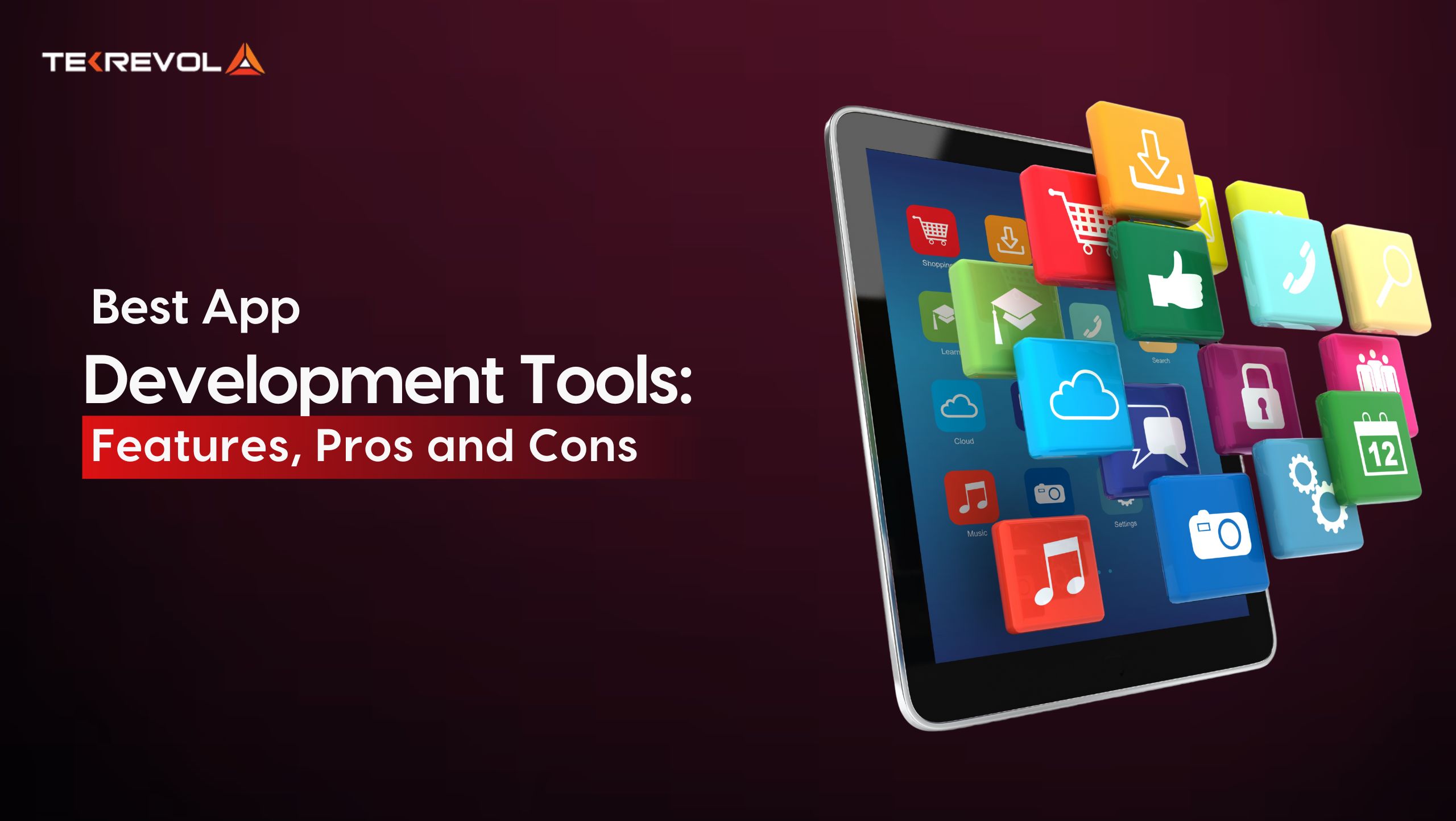Did you know that 25% of people use a real estate mobile application to search, purchase, or sell properties online? Smartphones have made it easier to engage in real estate transactions, which has made this already profitable industry even more competitive.
The popularity of online property searching is currently at an all-time high, leading to fierce competition in the real estate market. According to market reports, 95% of real estate agencies have their own websites featuring property listings. However, creating a website is just one small step in the face of such a large competition. To stay ahead, you need real estate app development for your business that stands out among the many options available for download.
So, what makes a real estate app “outstanding”? What features set it apart from others? It is essential to comprehend why creating a mobile app is critical for your real estate enterprise before addressing these inquiries.
The Importance of Having a Real Estate Mobile App for Your Business
The real estate industry has become highly digitized, with homebuyers no longer relying on agents to find their dream properties. Instead, people can use their smartphones to quickly browse through multiple homes and listings, making it imperative for a real estate mobile app development company to provide high-quality, user-friendly apps to meet the growing demand.
The National Association of Realtors report shows that over 44% of people looked for properties online first in 2018, and this number is expected to rise even further by 2023. According to projections in the US alone, the revenue in the Real Estate industry is expected to reach a total of US$395.40 billion in the year 2023. It is also anticipated that there will be a yearly increase of 2.15%.

Additionally, in 2018, a significant percentage of homebuyers across different age groups found their properties on mobile devices, with baby boomers indicating that virtual house tours were the most important feature in a real estate app, according to a source.

Mobile applications are being utilized by individuals in the real estate market, including homebuyers, sellers, and Realtors. To differentiate from the competition, it is essential to incorporate distinctive features in your real estate app. Below are some crucial elements that should be included in your real estate application.
- Would you like to create a real estate app for your business?
- We can talk about your project proposal and provide you with information about its development process, estimated expenses, and timeframe.
Essential Features of a Real Estate Mobile Application
Real estate mobile applications have become increasingly popular over the years as more homebuyers, sellers, and realtors are turning to their mobile devices for their real estate needs. With the vast competition in the market, it is important to develop an app that stands out and provides a seamless experience for the users.
The main objective of creating a real estate mobile application is to attract users and enhance the buying or selling experience. It is important to stay updated with the latest trends and features and implement them into your app, as you do not want your app to be just another one in the app stores that goes unnoticed.

In the following sections, we will discuss both essential and trendy features that should be integrated into your real estate application.
User-Friendly Interface
One of the most important features of a real estate mobile application is a user-friendly interface. The app should be easy to navigate, with a simple and intuitive design that allows users to quickly find what they are looking for. Mobile apps should provide a clean and straightforward interface that allows users to search for properties, view photos, and connect with agents seamlessly.
Analytics
Analytics is an essential component that every mobile app should possess, regardless of whether it is a real estate marketplace where users can purchase, sell or rent their properties, or a specialized app for your business. By including analytics in your app, you can comprehend how users interact with it. Analytics provides useful insights into the app’s performance and ways to enhance it.
You can obtain helpful information about users and their in-app behavior, including the duration of time spent on particular screens. This data enables you to make better decisions about your app. By categorizing users based on their conduct, you can include them in various marketing campaigns to maximize your data.
Advanced Search Filters
The app should offer advanced search filters to help users find properties that meet their specific needs. These filters should allow users to search by location, price range, property type, number of bedrooms and bathrooms, and other relevant criteria. A good real estate mobile app provides a variety of search filters, including the option to search for homes by school district, which can be particularly helpful for families with school-aged children.
Calendar
Although a calendar feature may appear to be a feature that is not necessary, it can be beneficial for both buyers and agents. Buyers can schedule appointments with agents or sellers directly from the app by checking available dates. Both parties will receive reminders at the scheduled time.
Property Details and Photos
The app should provide detailed information about each property, including photos, videos, virtual tours, and property descriptions. This information should be displayed in a clear and organized manner, with high-quality images that allow users to visualize themselves in the space. Real Estate app can also provide profile creation to enhance experience of realtor and buyer.
Saved Searches and Alerts
The app should allow users to save their searches and set up alerts for new properties that match their criteria. This feature can be particularly helpful for homebuyers who are actively looking for a property and want to be notified when new listings become available.
Mortgage Calculator
The app should include a mortgage calculator that allows users to estimate their monthly payments based on the price of the property, interest rate, and other relevant factors. This feature can help users determine if a property is within their budget and can be particularly helpful for first-time homebuyers.
Maps
Having maps integrated into a real estate app is an essential feature that cannot be ignored. It allows for the provision of valuable information to users, including property locations and related statistics. By accessing government websites, data can be obtained on a location’s crime rate, infrastructure, nearby schools, average income, and natural disaster risk. To display this information in the app, an experienced real estate app developer can retrieve the relevant data from government records and showcase it on the map.
Integration with Social Media
The app should integrate with social media platforms, allowing users to share properties with their friends and family. This can help increase the visibility of the app and generate more leads for realtors. Mobile app should allow users to share properties on Facebook, Twitter, and other social media platforms.
Favorites (Shortlisting)
It is crucial for your real estate mobile app to enable users to create a list of their desired properties and save them. This function helps users make their decision-making process more straightforward. Users can access their preferred properties in their personal profiles, along with all the relevant information, at any time.
Data Security
Data security is a crucial aspect of real estate mobile apps, as these apps often collect sensitive information from users, including personal details and financial information. Real estate companies must take steps to ensure that user data is secure and protected from potential cyber threats. This can involve implementing security features such as two-factor authentication, data encryption, and secure storage protocols. By prioritizing data security, real estate companies can build trust with their users and protect their sensitive information from unauthorized access or misuse.
In-App Messaging and Chat
The app should include an in-app messaging or chat feature that allows users to communicate with agents, ask questions, and schedule showings. This feature can help streamline the communication process and make it easier for users to connect with agents. A good real estate mobile app will include an in-app messaging feature that allows users to communicate with their agents and schedule tours.
Developing a real estate mobile application with the essential features discussed above can help provide a seamless experience for users and increase the success of the app in the market. By offering a user-friendly interface, advanced search filters, detailed property information, saved searches and alerts, mortgage calculators, social media integration, and in-app messaging and chat, you can distinguish your app from the others and gain more users.
- Are you interested in creating a custom Real Estate app and dominating the market?
- Our expertise in various business sectors can assist you in achieving your goals. Take a look at our services today!
Total Cost of Creating a Real Estate Application
After understanding the importance of investing in real estate app development, you may be curious about the associated costs. However, the cost of developing a mobile app for real estate varies depending on multiple factors. The following factors significantly impact the cost of real estate app development.

Features Set
The first factor that impacts the cost of developing a real estate app is the features set. The features set is a crucial aspect of the app as it determines the app’s functionality and user experience. The more complex the features set, the higher the development cost. Basic features that most real estate apps have included property listings, search filters, maps, and agent profiles. However, advanced features such as virtual tours, mortgage calculators, and 3D floor plans add to the development cost.
Design
Design is another crucial factor that affects the cost of developing a real estate app. A well-designed app has a significant impact on the user experience and engagement. The design elements of an app include the layout, typography, color scheme, and graphics. The more complex the design, the higher the development cost. An app with a simple design may cost less than an app with a complex design that involves custom illustrations, animations, and icons.
Device (iOS and/or Android) and Technology
The device and technology used in real estate app development also impact the cost. App development companies need to consider whether the app will be developed for iOS, Android, or both platforms. Developing an app for both platforms require more time and resources, thus increasing the cost. Additionally, the choice of technology used in developing the app can also impact the cost. For example, developing a native app using Swift or Java may be more expensive than developing a hybrid app using React Native or Xamarin.
Hourly Rate of the Development Company
The hourly rate of the development company is another factor that affects the cost of developing a real estate app. The hourly rate varies depending on the mobile app development company’s location. Companies in North America usually charge between $50 to $250 per hour, while companies in Eastern Europe may offer more affordable options.
Developing a real estate app requires a significant investment, and the cost depends on several factors. These factors include the features set, design, device and technology, and the hourly rate of the development company. To ensure that you get the best value for your money, it is essential to work with an experienced app development company in Florida that can help you balance the cost and features of the app.
Transform Your Real Estate Concepts into a Digital Reality Today
The real estate industry is fast-evolving, and mobile apps have become a vital tool for buyers, sellers, and real estate professionals. The ideal real estate mobile app should be user-friendly, feature-rich, and offer convenience and accessibility to its users.
The features discussed in the article are essential components of an ideal real estate mobile app. Furthermore, the article highlights the importance of data security, as real estate apps collect sensitive information from users. It is essential to ensure that the app is secure and that user data is protected.
In conclusion, a well-designed real estate mobile app with the right features can help real estate companies increase their reach and provide a better user experience to their clients. It is crucial for companies to understand the needs of their target audience and work with experienced app developers to build an app that meets those needs. By incorporating the right features and ensuring user data security, real estate companies can develop an app that stands out in a competitive market and meets the evolving needs of their users.
- Are you interested in creating a real estate application??
- We'll be happy to help you develop and expand your social networking project collaboratively.

 2616 Views
2616 Views April 4, 2023
April 4, 2023









